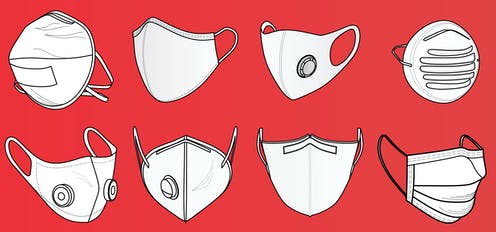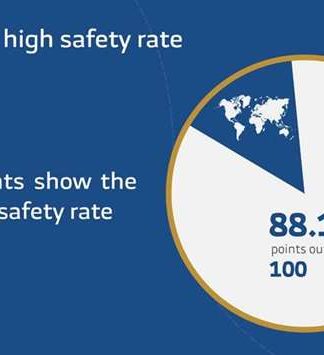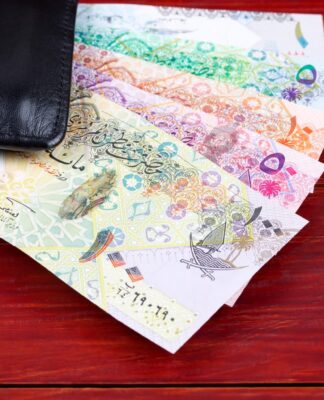Human rights groups are urging major clothing brands to cut ties with suppliers in the Xinjiang region of China.
/cdn.vox-cdn.com/uploads/chorus_image/image/67216386/GettyImages_1210871765.0.jpg)
An international coalition of human rights and advocacy organizations is working to urge popular fashion brands and apparel companies to divest from the Xinjiang region in northwestern China, where millions of Uighur people have been held in reeducation camps and forced to work. End Uyghur Forced Labour, a coalition of more than 190 organizations, published a call to action in late July, demanding brands to formally commit to withdrawing any supply chain ties from the region.
“There is a grave risk that brands and retailers across sectors are benefiting from human rights violations, including forced labor, both in and from the Uyghur Region,” the call to action reads. “This is especially true in the apparel and garment sector, which has been the focus of the majority of forced labor investigations in the region.” It’s not just T-shirts and jeans; the urgent demand for face masks helped shine a spotlight on these conditions.
As Jen Kirby reported for Vox, Chinese state officials have turned Xinjiang, the province where most Uighurs live, into a high-tech police state and implemented mass surveillance programs, in addition to forcibly detaining members of the Muslim ethnic minority group. “Uighurs inside and outside the camps are exploited for cheap labor, forced to manufacture clothing and other products for sale both at home and abroad,” Kirby wrote. In July, a New York Times investigation revealed how some medical-grade face masks that are sold in the US were produced in Chinese factories powered by Uighur labor. Before the coronavirus pandemic, the Times reported, only four companies in Xinjiang produced medical-grade personal protective equipment (PPE). That number had grown to 51 by the end of June, and at least 17 of those factories rely on the Uighur labor transfer program.
Advocacy groups argue that the problem doesn’t begin and end with PPE manufacturers; they say that any company that relies on Uighur workers could be benefiting from forced labor. In March, the nonpartisan think tank Australian Strategic Policy Institute published a report detailing how 82 foreign and Chinese companies have direct or indirect ties to the Xinjiang region and beyond based on their supply chain. “The tainted global supply chain that results from these practices means that it is now difficult to guarantee that products manufactured in China are free from forced labour,” the report concludes.
Several corporations listed by ASPI include Amazon, Apple, Dell, Nike, Nintendo, Uniqlo, Victoria’s Secret, and Zara. End Uyghur Forced Labor has largely focused its efforts on bringing to light the potential for abuse in the apparel and textiles industries, said Penelope Kyritsis of the Worker Rights Consortium, a group that is part of the coalition.
“The coalition’s demands rest on a principle that anything that comes out of that region, whether it be a garment, mask, or machinery, could be tarnished by forced labor because there’s no way to prove otherwise,” Kyritsis told Vox. “This is largely because of the surveillance apparatus set up; people’s actions are monitored whether they’re at work or in their homes. That makes it difficult for a worker to tell an independent labor investigator what their true conditions are, and absent of that evidence, there’s no certainty that Uighur labor is not coerced.”
According to a report from Human Rights Watch researchers, Chinese authorities use a mobile app that allows local police to collect personal information and data from Xinjiang residents, from their religious affiliation to blood type and height. Researchers who reverse-engineered the app used by officials discovered that the system “monitors people’s relationships, identifying as suspicious traveling with anyone on a police watch list, for example, or anyone related to someone who has recently obtained a new phone number,” and can then generate “lists of people to be evaluated by officials for detention.”
Given China’s standing as the second-largest cotton producer in the world, many retailers and brands that sell cotton products likely maintain ties with Chinese suppliers either directly or indirectly. About 84 percent of China’s cotton is produced in the Xinjiang region, according to China Daily, and it’s responsible for about one in five bales of cotton on the global market. According to Jernigan Global, a company that offers global supply chain management between cotton producers and retailers, the amount of Chinese state subsidies directed toward the industry has created “a modern mechanized cotton production operation that has also boosted production and quality,” establishing Xinjiang as “the heart of both China’s cotton and textile production.”
As more reports about the human rights abuses in Xinjiang have been unearthed, international leaders are becoming increasingly vocal about the political pressure that should be placed on China. Vox’s Kirby reported that the United States has imposed sanctions on Chinese officials and companies believed to be reliant on forced Uighur labor, including suppliers to international brands like Apple, Ralph Lauren, and Tommy Hilfiger. Now, though, major companies are being asked to account for the labor that goes into their supply chains, especially since the coronavirus pandemic brought greater scrutiny toward the relationship between suppliers and brands.
“There’s a lot of unfairness baked into the structure of global supply chains, specifically between brands, retailers, and suppliers,” Kyritsis added, acknowledging how the coronavirus has impacted these manufacturing relationships. “From where we stand, if brands don’t know where their cotton or textile comes from, they’re choosing to not know. They must do their due diligence and commit to ethical supply standards.”
In recent years, consumers have become more active in calling for supply chain transparency among popular brands. The onus nowadays falls more heavily upon retailers and companies, which have become eager to put out mission statements and campaigns in support of sustainability and ethical sourcing to please customers. Now that average Americans appear to be more informed about the Chinese treatment of the Uighurs, major companies can no longer brush the issue under the rug.
It has taken years for the international community to be as vocal as it is now about the plight of the Uighurs, said Peter Irwin of the Uighur Human Rights Project. Now, American consumers are starting to become aware of the extent of forced labor as the issue has gained more attention in the mainstream press. “The fact that this labor is touching the supply chain of global companies, the average American consumer could very well be wearing a T-shirt or jeans that has been manufactured or sourced from the region,” Irwin told Vox. “Forced labor is just one aspect and extension of the internment camp system run by the Chinese government.”
While countries like the United States, Canada, and parts of Europe have condemned China’s human rights violations, the pandemic has made it difficult for some smaller states to speak up, Irwin added. “Many companies or states rely on Chinese-made PPE and masks for their hospitals, and in many cases, these products are being shipped to the West.”
The coalition is currently pressuring around 80 brands to issue a statement of commitment and map out their supply chain to show how they’ve cut ties from the Xinjiang region. “Some brands have been more responsive than others,” Irwin said, adding that the group has not publicly released the list of companies they’re communicating with. The muddiness of the supply chain, especially when it comes to apparel brands, makes it difficult for consumers to track and understand where their products are coming from, Kyritsis said.
“It’s not the consumer’s job to dig into a company’s supply chain, although I understand that they would not want their money to contribute to exploitative labor,” she said. “There are certain things that can’t be changed by collective action, though, if the company is not willing to alter their supply chain.”






























